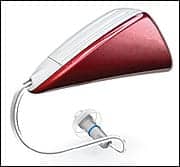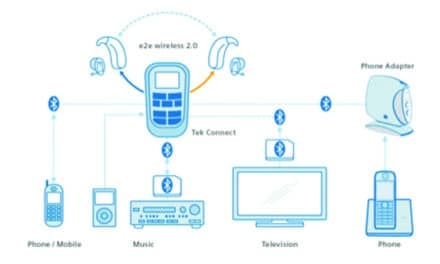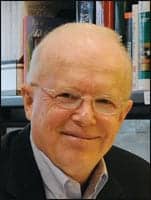Dear Editor,
Consumers need to know what they are missing!
Recently, New York State changed the CE requirements for dispensing audiologists and hearing instruments dispensers to include one hour of instruction on telecoil (t-coil) and other assistive listening devices. Five other states: Arizona, Florida, Rhode Island, Utah, and Delaware have adopted similar laws.
Our New York law also requires that a sign notifying consumers of this requirements be posted in our office. It states:
State law requires hearing care professionals to inform consumers of the benefits of telecoil technology, looped environments, and assistive listening devices.
Educated consumers in other states are working to change dispensing laws to require more extensive counseling on assistive listening technology and ADA accessibility. Why would they do this if they didn’t see the benefit?
The most recent data I read reported that 71% of all fittings in 2018 were RIC products. We need to educate all consumers by providing complete information about purchasing hearing devices with telecoils, yet the hearing industry makes this very difficult for conscientious hearing care providers, as so many manufacturers introduce flagship hearing aids without telecoils. Do they truly believe that all consumers need is Bluetooth?
How are consumers to access the ADA-mandated assistive listening systems, be they RF/FM or IR systems with neck loops or hearing loops that have been installed in millions of public venues around the country? The good news is that the number of hearing loops have dramatically increased in the last decade and surveys show that having access to a telecoil improves the consumers satisfaction with hearing aids.
Let’s not throw the baby out with the bath water, yet! While Bluetooth provides the consumer with useful one-to-one paired connection to cellphone, remote mic, and TV transmitters, the consumer needs telecoils to hear in public venues.
My wife and I have over 45 years between us professionally dispensing hearing aids in New York State. I find it such a conflict that we are required to adhere to these telecoil requirements for CEUs and telecoil patient counseling, yet manufacturers can sell their products to audiologists and hearing instrument specialists in our state without telecoils.
I implore the manufacturers to not abandon telecoils until a fully functioning replacement technology is developed, one that involves a worldwide and tested standard, adopted by not only the US, but authorities around the world.
In closing, I feel that as professional dispensers of hearing instruments in the United States, we all should always do what’s best for our clients regardless of what laws are on the books. Hearing instruments with telecoils extend the use of hearing instruments and, therefore, provide our clients the best option to improve quality of life. Let’s do this together.
The following are excerpts from the laws:
NEW YORK: Hearing Aid Dispensers Rules and Regulations Title 19 NYCRR, Part 192.18(b)(2) Consumers
General information about the general use of hearing aids and the advantages and disadvantages of monaural and binaural hearing aid use, including: information of the value of hearing aid use for a prospective purchaser; consumer protection piece—what to be aware of in sales pitches and “hard sell” techniques, such as “giveaways” and sales pitches that minimize the need for medical and audiological exams; basic “how to” use a hearing aid for a new consumer; and information about the advantages of purchasing and using the telecoil switch (t- switch).
FLORIDA: FSS 484.0501 (5) (b)
At the time of the initial examination for fitting and sale of a hearing aid, the attending hearing aid specialist must notify the prospective purchaser or client of the benefits of telecoil, “t” coil, or “t” switch technology, including increased access to telephones and noninvasive access to assistive listening systems required under The Americans with Disabilities Act of 1990.
A bill of sale shall contain language that verifies that the client has been informed about audio switch technology, including benefits such as increased access to telephones and assistive listening devices. if the hearing device purchased by the client has audio switch technology, the client shall be informed of the proper use of the technology. the client shall be informed that an audio switch is also referred to as a telecoil, t-coil or t-switch.
RHODE ISLAND STATUTES AND CODES: RI Gen L § 5-49-3 (2014) – Receipt required to be furnished to a person supplied with hearing aid.
(d) The receipt shall contain language that verifies that the client has been informed about the benefits of audio switch technology, including increased access to telephones and assistive listening systems required under the “American with Disabilities Act of 1990,” and section 504 of the Rehabilitation Act of 1973. The client shall be informed that an audio switch is also referred to as a telecoil, t-coil or t-switch.
This bill modifies the requirements for practicing as a licensed audiologist or a licensed hearing instrument specialist to inform each patient about hearing instruments that work with assistive listening systems when offering to sell the patient a hearing instrument; and makes technical changes. (b) inform each patient who is being offered a hearing instrument about hearing instruments that work with assistive listening systems that are compliant with the ADA Standards for Accessible Design adopted by the United States Department of Justice in accordance with the Americans with Disabilities Act, 42 U.S.C. Sec. 12101 et seq.
11.0 Operation and Benefits of Telecoil Technology: Required Disclosures
11.1 At the time of the initial examination for the fitting and sale of a hearing aid, audiologists and hearing aid dispensers shall:
11.1.1 Notify the prospective purchaser or client of the operation and benefits of telecoil, also known as “t” coil, or “t” switch technology, in using a hearing aid with “hearing loop” technology; and
11.1.2 Provide written information explaining telecoil and its uses, including increased access to telephones, and communication with businesses and the community and noninvasive access to assistive listening systems.
– Robert Bishton, BC-HIS, Hear We Are LLC/Second Sense Hearing Network, Rome, New York
Image: © Baz777| Dreamstime.com






Thank you!!! Totally agree with your perception! Seamless assistive listening technology is possible in all types of public spaces and. Telecoils + Hearing Loops = Crystal Clear Sound and ADA Compliance!
Thank you Robert Bishton for this most eccellent and inciteful article! An Educated Consumer is a happy consumer! Let’s Get America in the Hearing Loop!